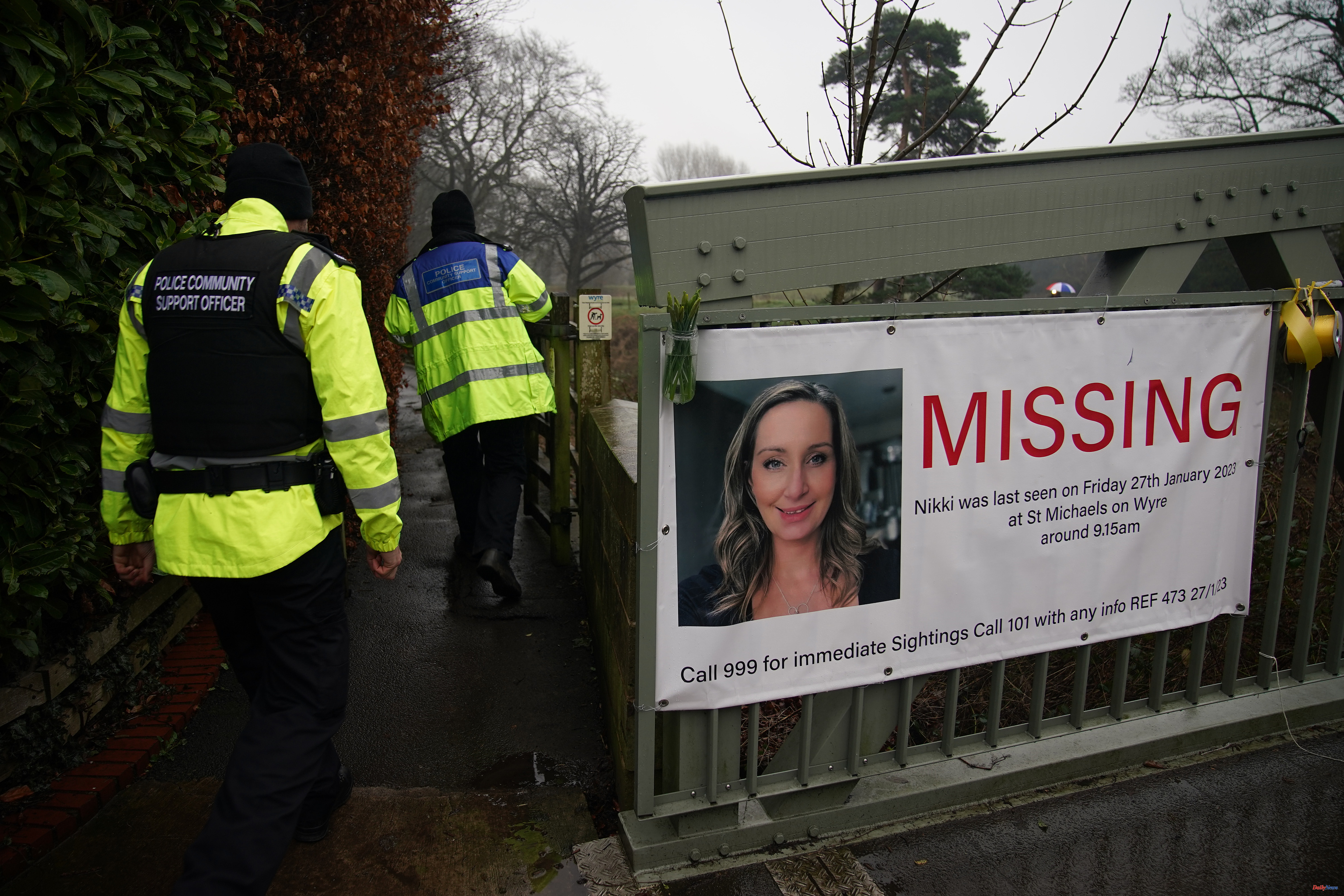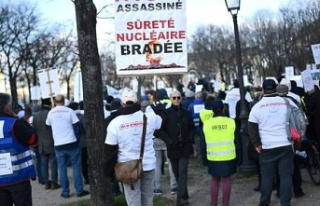Who. A 45-year-old mortgage adviser and mother of two daughters, Nikki disappeared on January 27 when she was walking with her dog on the banks of the River Wyre, in north-west England.
That. After 23 days, divers recovered a lifeless body from the water on Sunday.
Because. Millions of Britons followed the case in the media and the police were accused of "sexism" and intrusion into the private life of the "disappeared", by revealing that she had alcohol problems and symptoms of perimenopause.
All that is known for sure about 45-year-old Nicola Bulley is that she disappeared on January 27, 2023, at around 9:10 a.m., after leaving her two daughters, ages six and nine, in school and when he walked with his dog Willow on the banks of the River Wyre, in the town of St. Michael's on Wyre in the northwest of England.
His mobile phone, still connected to a work call, was discovered by a neighbor on a bank by the river at 9:33 in the morning. The dog, a springer spaniel, was loose and by the bench. The leash appeared halfway to shore. There were no apparent signs of violence anywhere. Nor is there any indication that he had fallen into the river, although that was always the first suspicion.
After 23 days of fruitless searches, various speculations, conspiracy theories, police negligence, personal grievances, political interference and media circuses, the clocks stopped at 11:36 on Sunday morning...
A call alerted to the discovery of a lifeless body in the River Wyre, just over a kilometer from where the disappearance occurred. The police cordoned off the area. A couple of helicopters and several drones kept watch from the sky. A team of divers went into the river and recovered the body.
It was the sad end of the mystery that for more than three weeks had millions of Britons in suspense. "Where's Nikki?" It was the question that the tabloids asked every day in big headlines. And the response has once again exposed the police, due to her clumsiness and her intrusion into the private life of the disappeared woman, after airing her problems with alcohol and her difficulties during perimenopause .
The accusing finger also points to the media for having fueled the collective morbidity and for having put his partner and father of his two daughters on guard, Paul Ansell, who had to make an appeal asking for respect for privacy. The family acknowledged that Nikki was taking hormone replacement therapy that caused her severe headaches and with which she tried to combat episodes of "brain fog."
The Home Secretary, Suella Braverman, intervened in the controversy by questioning the role of the Lancashire police, which has opened an internal investigation. Even Prime Minister Rishi Sunak halted his diplomatic offensive over the weekend to keep a close eye on the case. Several organizations condemned the "sexism" of the detectives and the desire for prominence of Superintendent Rebecca Smith, dressed in a skintight black suit and acting like a B-movie star before the media.
Diver Peter Faulding, who spent three days searching the bottom of the River Wyre unsuccessfully, also claimed his share of prominence, explaining why he had been unable to find his body on the river bed: "If I had known it was a person of high risk, the search would have been different. If someone tries to take their own life - and every year I deal with a number of suicides - the tendency is to go with the current until they manage to drown. It may sound horrible, but we are always looking for clues like whiskey bottles or pills, that people use to try to stay adrift."
Theories kept piling up as police completed their work on identifying the body. Dozens and dozens of residents of St. Michael's on Wyre and other towns left their yellow crape on a bridge over the River Wyre, next to the Missing sign with Nikki's face and the message left by her parents, Ernest and Dot Bulley: "We pray for you every day. We love you."
According to the criteria of The Trust Project












